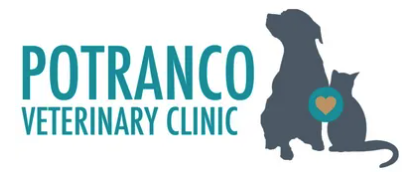

Pet Vaccinations in San Antonio, TX
Your pet is considered an important part of the family. You want them to have a long and healthy life. Just like any other member of your family, you want them to have the right foods to eat and places to sleep. Another important aspect of your pet’s wellbeing is their health.
Pet vaccinations help to build up your pet’s immune system and helps protect them against many common illnesses and diseases. Your pet should obtain vaccinations based on their breed, age, and current health condition.
What to Know About Pet Vaccinations
Pet vaccinations first begin when your pet is young. They may be given the main shot and then every few years obtain a booster to ensure the effectiveness of the vaccine. Rabies is a common vaccination that most pets, especially cats and dogs that go outside, should obtain. Other shots may be given to a pet that has more of a chance of obtaining a certain disease or medical condition.

Common Vaccinations
A veterinarian in San Antonio will explain to you the process of the vaccination and when you pets should become vaccinated. You should also inform your veterinarian on whether you plan to take your pet on vacation or if you need to use a pet daycare. The vet may recommend that your pet receive certain shots at a specific timeframe when they may be more likely to be exposed to transmittable medical conditions and diseases.
Vaccinations for Felines
- Rabies
- Distemper
- Herpesvirus
- Leukemia
- Calicivirus
Vaccinations for Canines
- Rabies
- Distemper
- Leptospirosis
- Adenovirus
- Parainfluenza
- Bordetella
Vaccinations are categorized as core vaccinations and non-core vaccinations. Core vaccinations are shots that are always given to pets and are recommended by organizations such as the American Animal Hospital Association as well as the American Veterinary Medical Association. These shots are given at specific developmental stages of the cat or dog’s life, as well as their age and lifestyle. Non-core vaccinations are shots that your veterinarian may recommend, and you may agree to, if your pet will find a benefit from the vaccine. Other times, non-core vaccinations may be given if your pet has been exposed to an illness or disease that makes the shots a medical necessity at that point in time.
Shots that fall under core vaccinations would be rabies, parvo, hepatitis, distemper, calcic, chlamydia, bordetella, parainfluenza, and rhinotracheitis. Non-core vaccinations would be Lyme and feline leukemia.
When to Schedule Your Pet Vaccinations
There are specific timeframes on when a pet should receive certain vaccinations. Pets will also receive a certain number of the same shots over a certain timeframe.
Vaccination schedules for cats would be obtaining 4 shots of panleukopenia/Distemper, calicivirus, and rhinotracheitis/herpes starting at the age of 8 weeks and continuing up to 18 weeks. The cat should also obtain their rabies shot at between week 16-18 and they may obtain their feline leukemia virus (FeLV) shot between week 8 and week 13. At 1 year of age, they should get their rabies and FeLV shots again along with a FVRCP shot.
Vaccination schedules for dogs would be to have their 4 shots of distemper, hepatitis, distemper, parainfluenza, corona virus, and parvovirus, from week 8 to week 18. They will also receive bordetella shots from 11-13 weeks and 14-16 weeks if your dog visits a groomer, dog park, or stays at a pet daycare. They should also receive their rabies shots during week 16-18 and every 3 years after the age of 1. Your pet may continue to receive vaccines for DHPPC, rabies, and bordetella every 6 weeks after the age of 1 if they are at a boarding kennel.

You should speak with your veterinarian regarding the vaccine timeframe for your particular pet. While it is advisable to start when the pet is young, you may not be able to do this based on when you obtain the pet, such as getting it as a gift, taking in a stray animal, or inheriting a pet from a friend or older relative. In the cases where the shot record is unknown or incomplete, the veterinarian will give a full examination and recommend which shots or boosters should be administered at that time. It’s also always advisable to keep up-to-date records of your pet’s vaccination, and to not skip getting their shots.
Potranco Veterinary Clinic: Keeping Your Pet Healthy and Happy
Whether you obtain your pet when they are young or get an older furry companion, you should always make sure that they get vaccinated. While the choice of getting pet vaccinations always lies with the owner, your pet may find immense health benefits from their shots. In addition, you ensure that your pet doesn’t pass along any illnesses or diseases to your other pets or animals that the pet may come in close contact with during walks, at the park, or at the groomers. Keep in mind that some shots are mandatory by the state, such as a rabies shot, or may be required if you plan to board your pet at a kennel.
Here at Potranco Veterinary Clinic, we provide pet vaccinations for all your furry companions. Contact us today to learn more.
